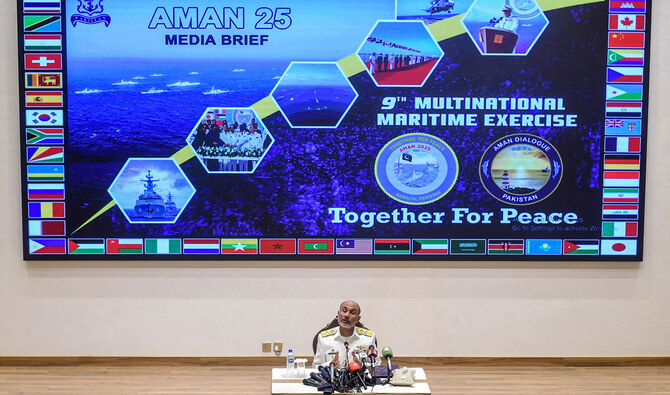ISLAMABAD: Pakistan’s President Asif Ali Zardari signed into law on Wednesday a controversial cybercrime bill passed by both houses of parliament, state-run media reported, despite criticism from the country’s opposition and prominent journalists who say it curtails their right to freedom of expression.
The development took place a day after Pakistan’s upper house of parliament followed the National Assembly by passing The Prevention of Electronic Crimes Amendment Bill, 2025, amid protests by opposition leaders and journalists who fear the new legislation will be used to censor social media platforms. After both houses passed the bill, it needed the president’s assent to become law.
Pakistan adopted the much-criticized Pakistan Electronic Crimes Act (PECA) in 2016, granting sweeping powers to regulators to block private information they deemed illegal. The law provided for up to seven years in prison for “recruiting, funding and planning of terrorism” online. It also allowed “authorized officers” to require anyone to unlock any computer, mobile phone or other device during an investigation. The government said at the time restrictions under the new law were needed to ensure security against growing threats such as terrorism and to crack down on unauthorized access, electronic fraud and online harassment.
The new amendment bill now proposes the establishment of the Social Media Protection and Regulatory Authority to perform a range of functions related to social media, including awareness, training, regulation, enlistment and blocking. SMPRA would be able to order the immediate blocking of unlawful content targeting judges, the armed forces, parliament or provincial assemblies or material which promotes and encourages terrorism and other forms of violence against the state or its institutions. The law also makes spreading disinformation a criminal offense punishable by three years in prison and a fine of two million rupees ($7,150).
“President Asif Ali Zardari has assented The Prevention of Electronic Crimes Amendment Bill, 2025, The Digital Nation Pakistan Bill, 2025 and The National Commission on the Status of Women (Amendment) Bill 2025,” state broadcaster Radio Pakistan reported.
The main opposition party, the Pakistan Tehreek-e-Insaf, called the law “draconian” on Tuesday, saying it would be used to suppress media freedom.
“We will challenge this and we will keep resisting till this black law is taken back,” the party said in a statement released to media.
A copy of the bill seen by Arab News has set imprisonment of up to three years and a fine of Rs2 million or both for “whoever intentionally disseminates, publicly exhibits, or transmits any information through any information system, that he knows or has reason to believe to be false or fake and likely to cause or create a sense of fear, panic or disorder or unrest in general public or society.”
Information Minister Ataullah Tarar told reporters last week that the bill will protect journalists and not harm them.
“This is the first time the government has defined what social media is,” Tarar said. “There is already a system in place for print and electronic media and complaints can be registered against them.”
He said “working journalists” should not feel threatened by the bill, which had to be passed because the Federal Investigation Agency, previously responsible for handling cybercrime, “does not have the capacity to handle child pornography or AI deep fake cases.”
Tarar said the government was also aiming to bring social media journalists, including those operating YouTube accounts, under the tax framework.
The operative part of the new bill outlines that the Social Media Protection and Regulatory Authority would have the power to issue directions to a social media platform for the removal or blocking of online content if it was against the ideology of Pakistan, incited the public to violate the law or take the law in own hands with a view to coerce, intimidate or terrorize the public, individuals, groups, communities, government officials and institutions, incited the public to cause damage to governmental or private property or coerced or intimidated the public and thereby prevented them from carrying on their lawful trade and disrupted civic life.
The authority will also crack down on anyone inciting hatred and contempt on a religious, sectarian or ethnic basis as well as against obscene or pornographic content and deep fakes.
Rights activists say the new bill is part of a widespread digital crackdown that includes a ban on X since February last year, restrictions on VPN use and the implementation of a national firewall.
The government says the measures are not aimed at censorship.






















